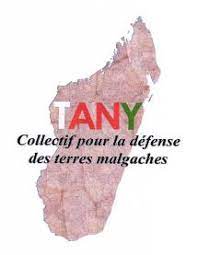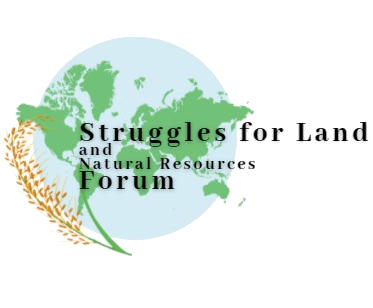DO INTERNATIONAL FINANCIAL INSTITUTIONS AIM TO REDUCE POVERTY AMONG THE MALAGASY OR THE OPPOSITE?

While public opinion is concerned about the final content of the amendments to the new land law relating to untitled private property (1), which are expected to be adopted during the current parliamentary session, a document by the International Finance Corporation (IFC) and the World Bank entitled "Private Sector Diagnostic - Creating Markets in Madagascar" published in December 2021 (2), is causing significant concern. Including recommendations on the "reform" of several laws so that foreign investors can become owners of Malagasy land, the land-related parts of its content deserve to be brought to the attention of all and to be denounced. This reminds us that the African Development Bank had issued as a condition for the allocation of funding from the Programme d'Appui à la Compétitivité Economique (PACE) in 2019 the adoption by the Malagasy leaders of regulatory texts relating to agropoles (3). The dramatic impacts of the possible application of these unacceptable proposals on the impoverishment of the already impoverished population require broad information and debate
I - What laws are mentioned that would allow foreign investors to own land?
1- The IFC and World Bank report starts with an analysis of the situation in Madagascar post-Covid 19. It highlights the country's flaws and shortcomings, already often mentioned, which would prevent the development of the private sector and the arrival of investors, such as governance and the lack of infrastructure in various areas. It then puts forward proposals to improve the "business environment" by asking in particular
- the reduction of "unfair advantages enjoyed by some incumbent companies",
- the adoption of an investment law that "harmonises the different laws and regulations [...], which is a key condition for increasing investor confidence
- and the acceleration of "reforms" that would motivate new companies to set up shop, citing "transfer of ownership". (2)
2 - The chapter on land points out that the land market in Madagascar "is not functioning because of a precarious land tenure system that limits access to land for agricultural production and private sector enterprise development". According to the report, "foreigners cannot permanently acquire land, and the leasing framework does not provide sufficient security for long-term investments". It therefore suggests
- "Updating the legal framework and the Framework Law on Zoning to clarify procedures for investment zones, including agricultural investment zones,
- the adoption of the Law on Private Titled Land, which aims to facilitate land transfer procedures and create the possibility of acquiring land" (2)
The risk of the Malagasy government adopting these World Bank recommendations is very high because in a letter of intent to the International Monetary Fund (IMF) dated 24 February 2022, the Minister of Economy and Finance writes "We will continue our efforts to promote a favourable business climate, which is essential to stimulate private investment, as foreseen in our EMP (4). [...] In the framework of a new investment law, we intend [...], to strengthen the equal treatment of domestic and foreign investors, and to clarify [...] the issues of access to land and property rights" (5)
All of the laws mentioned have been strongly criticised by civil society organisations and others, however, and an unannounced presentation of new versions of these texts for a vote by parliamentarians in this May 2022 session would be completely unacceptable.
II - Why do these recommendations go against the development of the Malagasy?
1 - Legalizing the purchase of Malagasy land by foreign investors is dangerous for the existence of the majority of Malagasy in the medium and long term and for their economic, social, cultural and environmental rights. The glaring inequality of means could quickly lead to a massive transfer of land to foreign investors and to the availability of a minority share of the territory to Malagasy nationals with modest incomes. The Malagasy have a very strong attachment to land, as the report states. Three quarters of the population live from their work on the land. Land is not a commodity but a public good, precious, common to the whole Malagasy nation, which future generations will have to inherit to ensure their food sovereignty and development. The
guidelines for the protection of private property, skilfully laid down in the Constitution, have still not enabled Malagasy families to recover the vast and fertile land to which the colonists hold "definitive and unassailable" titles, and new laws risk facilitating the acquisition of land titles by foreign investors? Ensuring better access to land so that local communities can live in dignity and feed the nation cannot be confused with the establishment of neoliberal 'land markets'. We insist that the legalization of land purchases by foreign companies and other entities in Madagascar must be rejected as it is
contrary to the sustainable development of the Malagasy.(6)
2 - The references in the IFC and World Bank document to zoning and the framework law refer to two very controversial pieces of legislation
- on the one hand, the law on special economic zones (SEZ) passed in 2018, after many twists and turns due to its rejection by ordinary citizens, civil society organisations and politicians, and whose implementing decree has not been issued by the competent authorities; (7)
- on the other hand, the draft framework law on land with specific status, including zones dedicated to investments, which provoked an outcry in 2020 from civil society organisations, protected area managers and donors working in the field of land, rural development and the environment (8).
It was during a workshop organised by the Fonds National Foncier in Antsirabe in March 2020 on this last bill that a presentation on agropoles was made (9). We later learned that the "adoption of two decrees on the creation and management of agropoles constituted one of the conditionalities of the 3rd tranche of budgetary aid for Madagascar from the ADB under PACE III" (3). Like SEZs, agropolises refer to a set of enterprises, producers and services within a given geographical area, which "will benefit from measures relating to fiscal incentives and investment protection" (10). The National Strategy for Agribusiness tells us that 4 million hectares of agropoles are planned in the coming years in Madagascar (11). However, other countries that have experimented with this approach since the 2000s show that it does not always achieve the desired objectives and leads to harmful effects for small farmers (12). Based on existing long leases of 30 years or more, Malagasy civil society organisations have stated that 'with regard to investment zones, several examples show that successive leaders have favoured foreign investors by allocating them large areas [...]. The Malagasy families who occupied these lands then lost their places of life and work, as well as the ancestral lands where their culture took root, and saw their environment desecrated, denatured and destroyed, their water sources polluted and various diseases develop: their impoverishment and suffering are undeniable" (13).
This observation by Malagasy organisations is confirmed by a Land Matrix Initiative study published this week based on 740 cases of large-scale land allocations (of 200 ha or more), including Malagasy cases, which states that 'the overwhelming majority of land investments in Africa are still too often made to the detriment of local populations and the environment' (14).
The consequences of a final sale of land of varying sizes to foreign investors would be even more serious.
Conclusion
The demand for "access" to land ownership by foreign investors in Madagascar, as conveyed by the World Bank's private sector diagnosis, is scandalous because it does violence to Malagasy cultural values, cancels out any hope of sustainable development for the majority of the population, and aims to further enrich national and foreign oligarchs. It promises us even more inequality, not less. If the unequal treatment of existing investors and newcomers is a problem, it is in the direction of reducing the advantages of privileged investors that the laws should be modified, but not in the direction of the definitive stripping of the Malagasy generations of today and tomorrow of their land, which the
legalization of land sales to foreign investors will certainly cause.
The serious global food crisis that is beginning should push leaders to strengthen the means of production of all Malagasy peasants by facilitating their access to more land, compared to the current average of less than 1 ha per farm. On the contrary, to rely on investors and grant property rights to foreign investors, is this not to scorn peasants and condemn peasant agriculture to certain death?
Logic and coherence in the fight against poverty and famine should lead decision-makers to focus on ways to support Malagasy peasants to produce food independently for their families and for the local market, instead of favouring agribusiness and supporting projects that are suicidal for the population, such as the sale of Malagasy land to foreign investors and "Madagascar, Grenier de l'Océan Indien" (15, 16)
20 May 2022
Collectif pour la Défense des terres malgaches - TANY
patrimoine.malgache@yahoo.fr ; www.terresmalgaches.info ; www.facebook.com/TANYterresmalgaches
The TANY Collective is now on Twitter:
@CollectifTany
References:
(1) https://www.assemblee-nationale.mg/wp-content/uploads/2021/07/Loi-n%C2%B0-2021-016-propri%C3%A9t%C3%A9-
fonci%C3%A8re-priv%C3%A9e-non-titr%C3%A9e_corrig%C3%A9.pdf;
https://www.foncier-developpement.fr/actualite/madagascar-resume-et-analyse-des-points-saillants-de-la-nouvelle-loin2021-016-regissant-la-propriete-fonciere-privee-non-titree/
(2) https://www.ifc.org/wps/wcm/connect/4d681c7b-538c-4c59-bf59-f5030b76a561/CPSD-MadagascarFR.pdf?MOD=AJPERES&CVID=nSi04A9;
https://blogs.worldbank.org/fr/africacan/mobiliser-le-secteur-prive-pour-soutenir-le-developpement-de-madagascar
(3) Quote from the Note de présentation des projets de décrets régissant la mise en place des agropoles et les structures
de promotion et de gestion des agropoles par le Ministère In the 2022-2026 Country Strategy Paper, the AfDB no longer talks about agropoles but declares on several occasions that it supports the improvement of the business environment. https://www.afdb.org/fr/documents/madagascar-document-de-strategiepays-2022-2026.
(4) PEM: Plan Emergence Madagascar (5) https://www.imf.org/en/Publications/CR/Issues/2022/03/16/Republic-of-Madagascar-First-Review-Under-the-ExtendedCredit-Facility-Arrangement-Press-515241 page 66 paragraph 38. (6) https://www.assemblee-nationale.mg/wp-content/uploads/2020/11/Loi-n%C2%B0-2007-036-sur-les-Inv.%C3%A0-Mcar.pdf https://p1.storage.canalblog.com/28/03/448497/130046385.pdf (7) https://edbm.mg/wp-content/uploads/2017/12/Loi-n-2017-023_ZES.pdf (8) http://terresmalgaches.info/IMG/pdf/projet_de_loicadre_sur_les_terrains_a_statuts_specifiques_pour_observation_mars_2020.pdf
(9) https://www.lakroa.mg/item-2070_articles_economie_18-atelier-de-finalisation-du-projet-de-loi-sur-les-terrains-a-statutspacifique.html
(10) Technical Committee on Land and Development, 2022 (forthcoming) Special Economic Zones and Land Tenure: Global Trends
and Local Impacts in Senegal and Madagascar
